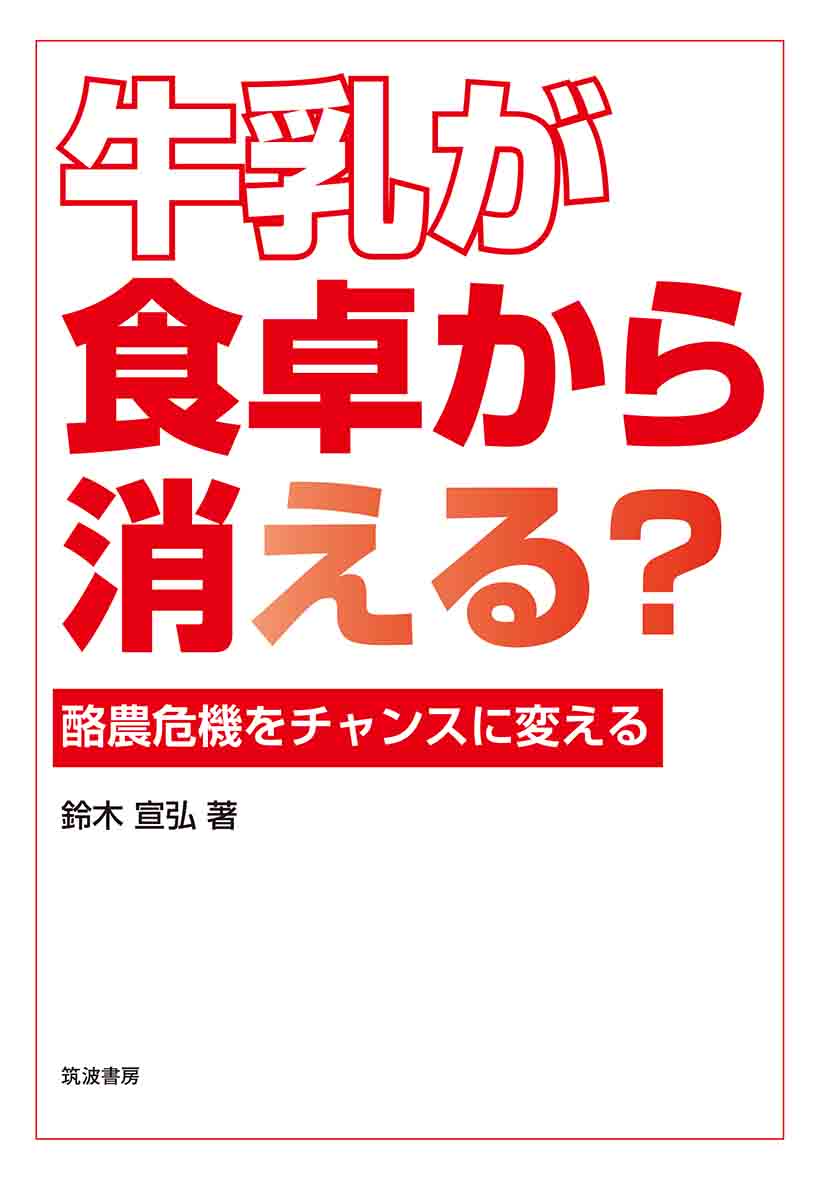
Title
Gyūnyū ga shokutaku kara kieru? (Will milk disappear from the dining table? - Turning Japan’s dairy crisis into an opportunity)
Size
85 pages, softcover
Language
Japanese
Released
October, 2016
ISBN
978-4-8119-0496-2
Published by
Tsukuba Shobo
Book Info
See Book Availability at Library
Japanese Page
The Council for Regulatory Reform has observed that as a result of the “designated organization system,” which specifies an organization to collect milk from dairy farmers, dairy farmers cannot sell milk freely, resulting in stagnant income. In 2017, the Act on Stabilization of Livestock Management was revised to bring about a fair business environment in which dairy farmers could freely choose their sales channels.
However, the idea that simply liberalizing a system leads to increased social benefits is close to empty theorizing. The falsity of this idea has been demonstrated numerous times, including with the deregulation of the taxi industry. Unsurprisingly, it was reported in March 2020 that since the end of November 2019, the company which the Council for Regulatory Reform had praised as the paragon of milk distribution liberalization had stopped collecting milk from some dairy farmers.
Collecting and selling easily spoiled fresh milk in small units is extremely inefficient and causes chaos among dairy farmers, distributors, manufacturers, and retailers. It makes it difficult to supply customers with safe milk and dairy products at the necessary times and quantities. In short, the new system made it impossible to adjust supply and demand. Regulatory reform of Japan’s dairy industry thus failed.
To prevent another failure, a joint distribution system by agricultural cooperatives that allows bulk collection and sales of milk is essential. The adoption of policies that strategically support such a system to secure the distribution of milk is a common feature among many countries worldwide. According to Professor Richard Kilmer of the University of Florida, because of the perishability of fresh milk and the need to sell it in an orderly manner to consumers, the U.S. government has treated dairy farming as a public utility almost on par with electricity and gas. His comment is representative of the regard for the importance of milk by countries around the world.
Compared to those countries’ strategic national support for dairy farming and its provision of milk and dairy products as basic staples, Japan’s institutional support is among the weakest in the world. Nevertheless, it was still argued that by abolishing overprotective regulations and liberalizing trade, Japan’s dairy industry would strengthen and dairy farmers’ income increase. However, the results hurt the dairy industry. If the status quo continues, dairy farmers’ income will fall even further, threatening the continued existence of milk in grocery stores.
Thus, while the situation surrounding Japan’s dairy industry is grim, we must find a way forward. This book examines how Japan’s dairy farmers, cooperatives, and industry should operate in the future and the policies to support them. In particular, it explores the possibility of Japan’s milk and dairy products becoming more competitive in the marketplace in the medium to long term, even with trade liberalization to a certain extent, as international dairy prices rise amid mounting pressure on supply and demand. The path forward will open by surmounting present conditions and maintaining or expanding milk production. To achieve this reality, it is essential to implement a governmental system that buffers shocks, such the U.S. government’s subsidies to maintain the minimum margin for the milk-feed price ratio, so that future planning by Japan’s dairy farmers and industry participants becomes possible. This book presents a prescription for turning Japan’s dairy crisis into an opportunity.
(Written by SUZUKI Nobuhiro, Professor, Graduate School of Agricultural and Life Sciences / 2020)



 Find a book
Find a book

